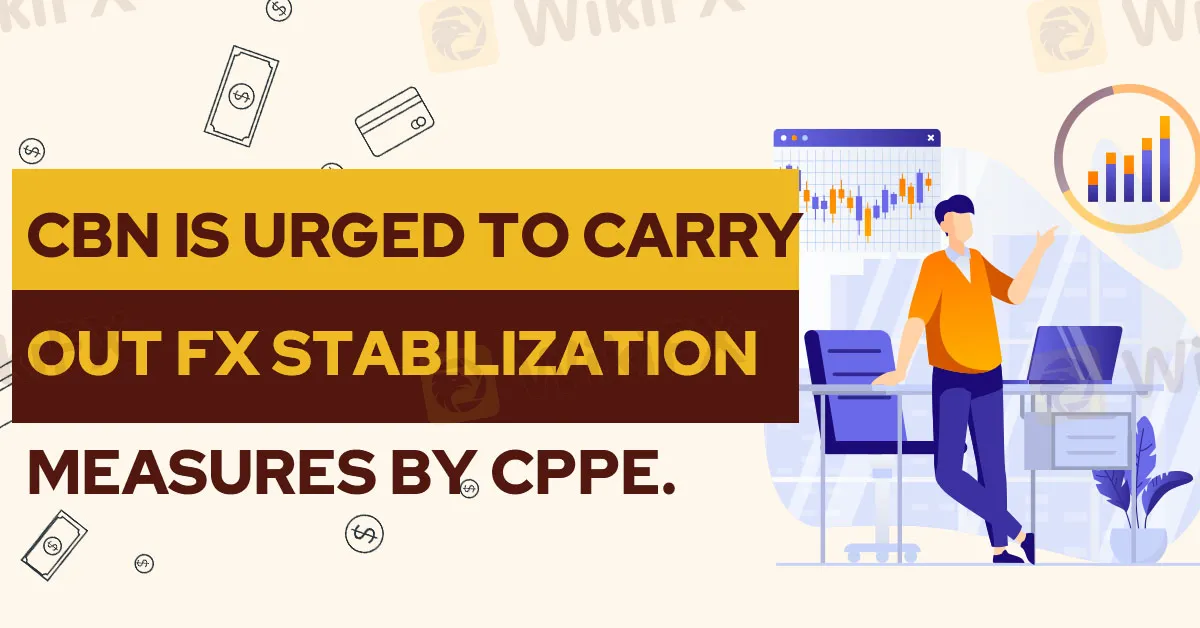简体中文
繁體中文
English
Pусский
日本語
ภาษาไทย
Tiếng Việt
Bahasa Indonesia
Español
हिन्दी
Filippiiniläinen
Français
Deutsch
Português
Türkçe
한국어
العربية
CBN IS URGED TO CARRY OUT FX STABILIZATION MEASURES BY CPPE
Abstract:The FX market is an international, decentralized, over-the-counter platform where currencies can be traded.

The FX market is an international, decentralized, over-the-counter platform where currencies can be traded. The FX rates for each currency are set by this market. It covers every facet of purchasing, selling, and converting currencies at established or current rates. It is by far the biggest market in the world in terms of trade volume, with the credit market coming in second. The bigger international banks are in this industry. With the exception of weekends, financial hubs all over the world serve as anchors for trading between a variety of different types of buyers and sellers. Because currencies in pairs, the market price of one currency established when paid for with another establishes a currency's relative worth rather than its absolute value.
The Central Bank of Nigeria has been asked to take the actions suggested by the Center for the Promotion of Private Enterprise (CPPE) in order to lessen the strain on the FX market.
Provided by CPPE CEO Dr. Muda Yusuf during a Friday interview in Lagos with the News Agency of Nigeria (NAN).
Yusuf discussed strategies to increase market stability and liquidity.
As I understand it, the CBN has cleared up to 70% of the backlog. However, this effort made an impact on certain banks. “In my opinion, that represented the FX market.”
In order to mobilize a lot more liquidity, the CBN have informed us of further actions they are doing.
For example, the plan to securitize our dividend from Nigerian Liquefied Natural Gas in order to exchange money from a few banks.
The NNPC then made Forward sales of crude. In order to obtain some money, the government was also negotiating something with AFREXIM Bank.
Efforts made to increase crude oil exports because increasing output will undoubtedly increase FX inflow. Thus, these are the actions that have been done, and work, he stated.
The head of CPPE voiced concern over the slow pace of real results manifesting.
“How soon these will now begin to turn into a different thing,” he said. “At least we have seen some impact it had on the market and the naira with the clearing of some backlog.”
Once more, it's hard to say how sustainable they will be; it all depends on how successful the government can be.
The key takeaway is that the market will start to exhibit more long-term stability if successful in implementing some of the initiatives that have been mentioned.
“It depends on how much, the important thing is that efforts are being made, and the president has been traveling to entice investors to come.”
“Of course, if we are successful in that, there will also be some inflows into the economy, though those may be medium- to long-term.”
Speaking about inflation, Yusuf pointed out that FX had an impact on and a control over food inflation.
He continued by saying that there was a direct correlation between inflation and the exchange rate.
He said we would be able to control inflation if we could stabilize the exchange rate.
Because of the economy's reliance on imports, changes in the FX market will have a result on inflation whenever there is a depreciation.

Disclaimer:
The views in this article only represent the author's personal views, and do not constitute investment advice on this platform. This platform does not guarantee the accuracy, completeness and timeliness of the information in the article, and will not be liable for any loss caused by the use of or reliance on the information in the article.
Read more

The Euro at Risk of Falling Below Parity with the Dollar
Recently, on January 13, the US Dollar Index broke through the 110 mark, hitting its highest level since November 2022, before pulling back slightly to around 109.93.

Data to Watch This Week
Last week, U.S. employment data significantly exceeded expectations, further solidifying market expectations that the Federal Reserve will not be making aggressive interest rate cuts. This week, the focus shifts to important economic data and the start of earnings season.

Confirmed! US December non-farm payroll exceeded expectations
Last Friday, the U.S. Bureau of Labor Statistics released strong employment data, further diminishing market expectations for interest rate cuts by the Federal Reserve this year. Currently, the market widely expects the Fed to begin cutting rates again in October.

How Did the Dollar Become the "Dominant Currency"?
Since the fourth quarter of last year, the strong trend of the U.S. dollar has intensified, and as we enter 2025, investors face a contradictory situation.
WikiFX Broker
Latest News
Wolf Capital Exposed: The $9.4M Crypto Ponzi Scheme that Lured Thousands with False Promises
Confirmed! US December non-farm payroll exceeded expectations
Spain plans 100% tax for homes bought by non-EU residents
90 Days, Rs.1800 Cr. Saved! MHA Reveals
The Yuan’s Struggle: How China Plans to Protect Its Economy
LiteForex Celebrates Its 20th Anniversary with a $1,000,000 Challenge
400 Foreign Nationals Arrested in Crypto Scam Raid in Manila
Singapore Blocks Polymarket Access, Following U.S. and France
OneZero Collaborates with Ladies Professional Golf Association (LPGA)
Housewives Scammed of Over RM1 Million in Gold Investment Fraud
Currency Calculator






